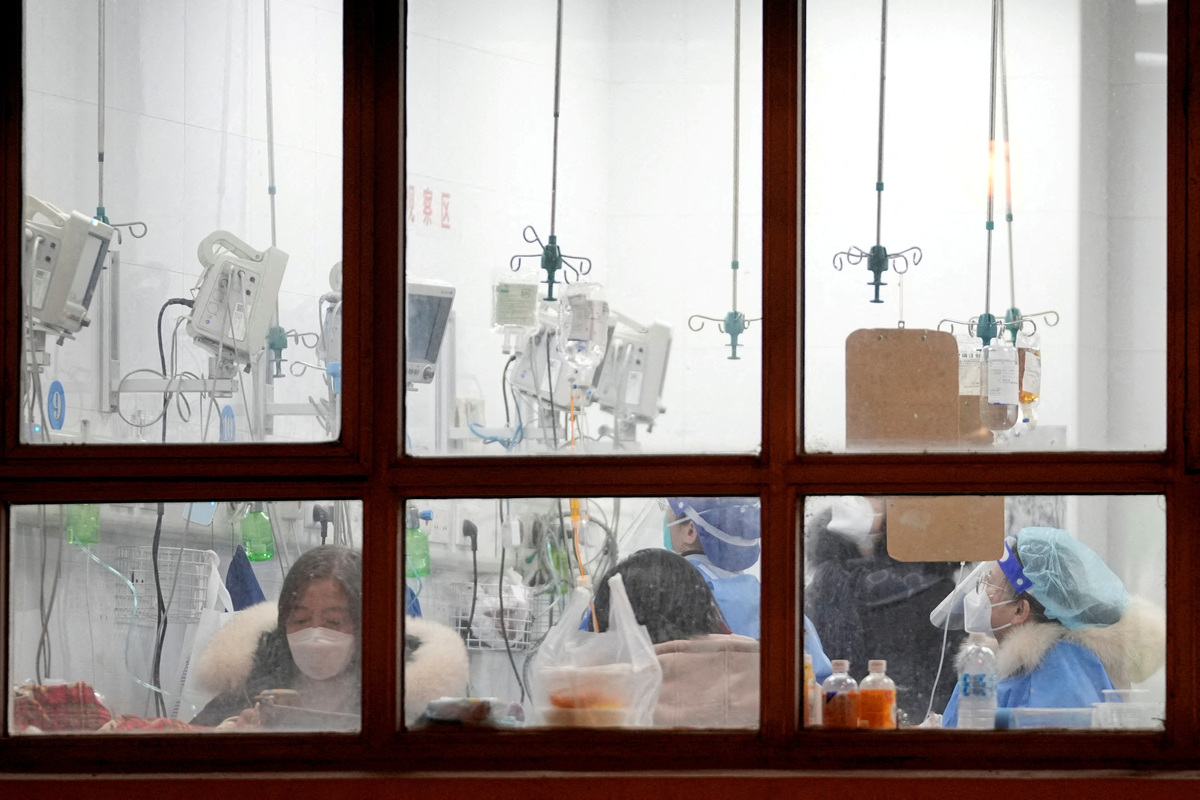
After China scrapped three years of zero-COVID curbs in 30 days, setting off a massive wave of infections, Beijing's policymakers face an immense challenge to treat the sick and minimise deaths while winning back public trust dented by previous policies.
Scenes of overwhelmed hospitals, people on intravenous drips by the roadside and lines of hearses outside crematoria have fuelled public concern. An extraordinarily small number of reported fatalities - 10 deaths since the old policy regime was overturned on Dec. 7 - and a decision by authorities to stop publishing data on cases have also stoked distrust.

With estimates of millions of daily cases and at least 1 million COVID deaths next year, global experts say the world's most populous nation needs to bolster its medical infrastructure quickly. Chinese officials have vowed to step up protection for key demographic groups - including millions of elderly people - boost vaccination rates and expand healthcare resources.
Experts say China has been caught ill-prepared by the abrupt U-turn in policies long championed by President Xi Jinping and implemented by trusted ally Vice Premier Sun Chunlan, be it the Chinese capital or the countryside.
In December, tenders put out by hospitals for key medical equipment such as ventilators and patient monitors were two to three times higher than in previous months, according to a Reuters review,suggesting hospitals across the country were scrambling to plug shortages.
China's COVID policy, especially at the grassroots level, is in chaos due to crunches in medical supplies and the sheer number of sick elderly people, said Alfred Wu, associate professor at the Lee Kuan Yew School of Public Policy at the National University of Singapore.
"This is very much an unprecedented emergency now, because of the healthcare crunch that has happened everywhere, at different levels, even in Beijing," Wu said.
"More fundamental, and more subtle and more important is the social contract and social trust in China. It is supposed to be very high and supposed to help the government deal with many challenges but now the issue is we don't know how much faith people have in the government."
The State Council Information Office, which handles media queries for the government, did not respond to Reuters requests for comment.
COVID CZAR
Over the past three years, Vice Premier Sun, 72, has been the face of China's COVID fight, a mother-like figure who has executed Xi's zero-COVID policy with a firm hand.
On Jan. 22, 2020, while visiting the central city of Wuhan where the new coronavirus was first found, Sun told local cadres to implement the "strictest" counter-epidemic measures. A day later, the city of over 13 million was thrown into a lockdown - the first of many across China that sparked anger and protests.
In April this year, Sun rushed to Shanghai as the city went under lockdown, according to state media reports. At the end of a one-month stay, Sun said it was not the time for the city of 25 million to relax. The lockdown continued for another month.
Trusted by Xi, the former factory worker has taken blows for his COVID policies.
In 2020, while inspecting a high-rise condominium in Wuhan, her group was heckled by residents under lockdown. "It's fake! It's fake!" they yelled from their windows, accusing officials of staging grocery deliveries to coincide with her visit.
During the Shanghai lockdown, while also on an inspection tour, Sun was bombarded by pleas from residents shouting from their windows: "No more rice! No more cooking oil! Please take us with you! Don't leave us!"
Sun will step down in March during a Cabinet reshuffle that also involves many other top government officials. She is also past the typical retirement age of 68.
"From a political perspective, she has faithfully obeyed the orders of President Xi," said Yanzhong Huang, senior fellow for global health at the Council on Foreign Relations (CFR), an independent U.S. think tank.
According to minutes of a COVID teleconference among top policymakers seen by Reuters and confirmed by a source with knowledge of the meeting on Dec. 25, Li Qiang, the former Communist Party chief of Shanghai who oversaw the city's two-month lockdown, spoke as the new head of a small but powerful policy-deciding group on COVID.
Li is a close ally of Xi's and was recently elected to the No.2 position on the seven-man Standing Committee, the pinnacle of power within the Communist Party.
How the current infections are tackled remain a key near-term challenge to COVID czars.
"If they cannot do a good job in handling the surge of cases and this leads to mass die-off, that fear and panic would be a challenge to social and political stability," CFR's Huang said.
(Reporting by Eduardo Baptista and Ryan Woo; Editing by Lincoln Feast.)







